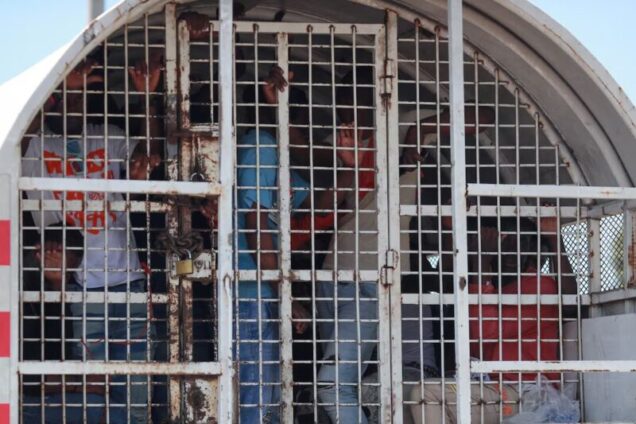The Dominican Republic on Wednesday announced an "immediate" plan to deport up to 10,000 migrants per week, as it ramps up enforcement along its border with Haiti despite U.N. pleas for it not to expel people to its conflict-hit neighbour.
The announcement from the Caribbean island nation did not specify that the plan would target Haitians, but nationals from its neighbour have made up the vast majority of deportees.
If implemented, the plan would mark significant growth in deportations after more than 200,000 Haitians were forcibly returned last year, according to U.N. data.
In its statement, the president's office pointed to the slow progress and "limited" results of a U.N.-backed security mission sent to help Haitian police retake control of the capital from the growing presence of armed gangs.
"Faced with this reality, we're forced to act decisively," presidential spokesperson Homero Figueroa said in the statement.
The plan calls for more border inspectors, surveillance drones and building "temporary repatriation camps", while taking into account both security and human rights, Figueroa said.
A spokesperson for Haiti's prime minister did not immediately respond to a request for comment.
The United Nations has asked countries including the Dominican Republic and the United States to halt deportations to Haiti, where severe hunger has soared and is now affecting nearly half the population of around 11 million.

The number of Haitians internally displaced has nearly doubled in six months, surpassing 700,000 as gangs expand to areas around the capital.
The Dominican Republic, which shares the island of Hispaniola with Haiti, last year accounted for 96% of Haitians deported from countries around the world.
Dominican Republic President Luis Abinader was reelected this year, pledging to take a tough stance on Haitian migration.
Last year, the Dominican Republic shuttered border crossings citing a conflict over a canal being built in Haiti off a shared river. In 2022, it began building a border wall.
Local activists have for years protested deportations of vulnerable people such as pregnant women and the stripping of Dominican nationality from some 200,000 people born to Haitian parents over a decade ago.
Latest Stories
-
Empower360 completes third training session for 30 young women under Ghana Grows Program
33 minutes -
Sudan: A new gov’t amid escalating military-political conflicts and a deepening humanitarian crisis
35 minutes -
National Vaccine Institute makes impressive strides, activate measures for drug production
40 minutes -
Ministry of Works and Housing signs MoU for water exploration in Ghana
1 hour -
Tree for Life initiative takes off
2 hours -
FDA destroys counterfeit pharmaceutical products worth GH₵42m
2 hours -
First responsibly mined Ghanaian gold bars presented to Asantehene
2 hours -
Two notorious robbers jailed for a series of attacks in Wa
3 hours -
Ofori-Atta must first be arrested before any trial in absentia – OSP clarifies
3 hours -
QNET reaffirms ethical business practices following false media allegations in Ghana and Burkina Faso
3 hours -
OSP declaring Ofori-Atta wanted over bruised ego – Miracles Aboagye
3 hours -
OSP must necessarily be aggressive but presumption of innocence is fundamental – Kofi Bentil
3 hours -
I wouldn’t return to Ghana if I were Ofori-Atta – Miracles Aboagye on OSP case
3 hours -
I won’t advise Ofori-Atta to return to Ghana – Kofi Bentil
3 hours -
OSP has overreached his bounds; I won’t advise Ofori-Atta to return – Kofi Bentil
3 hours

